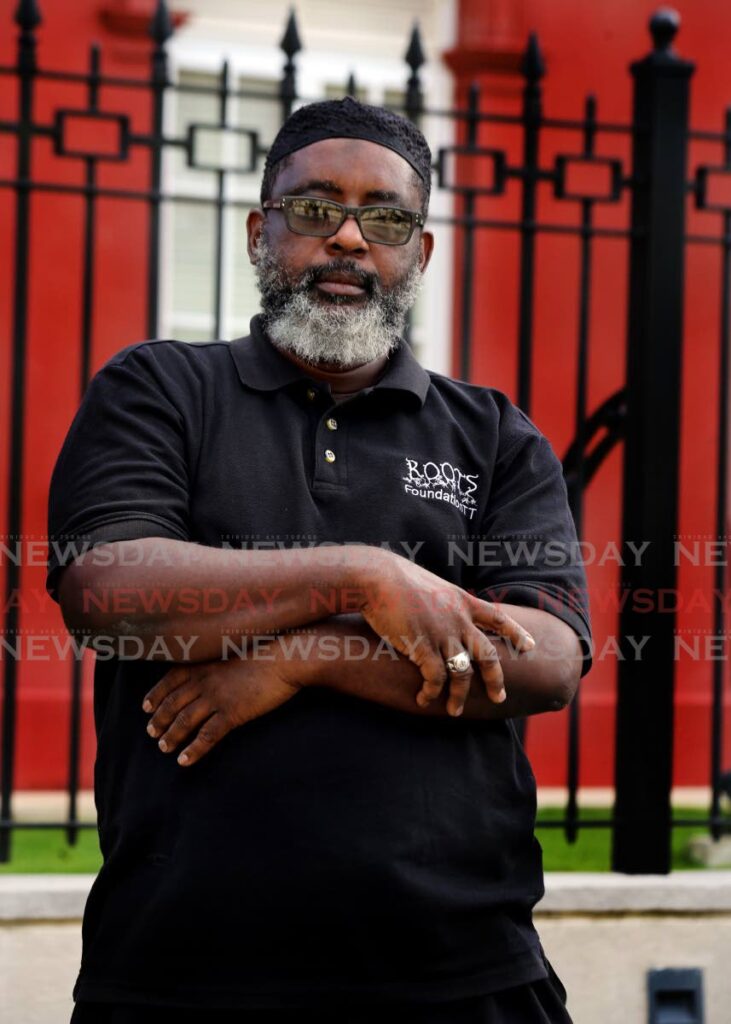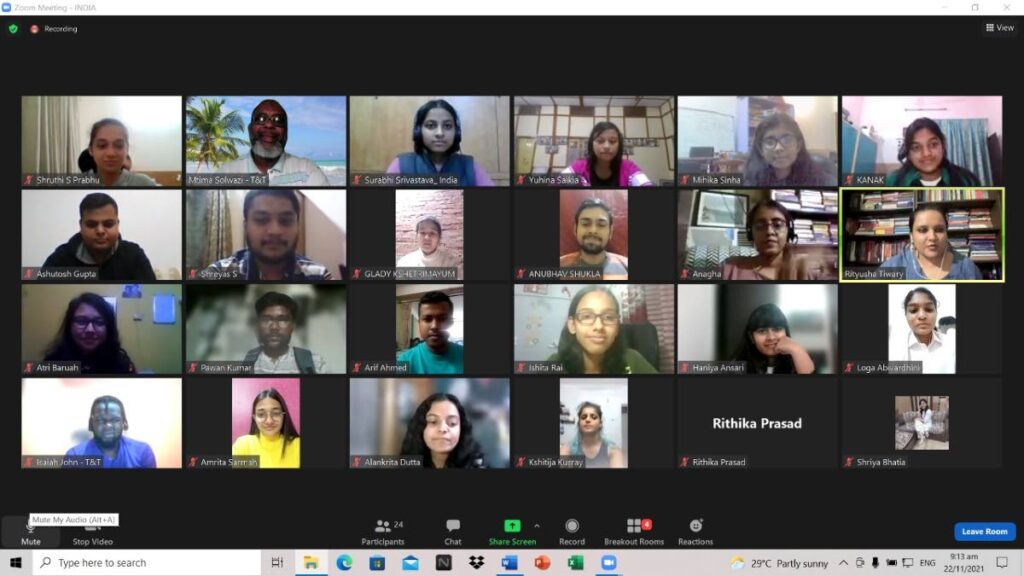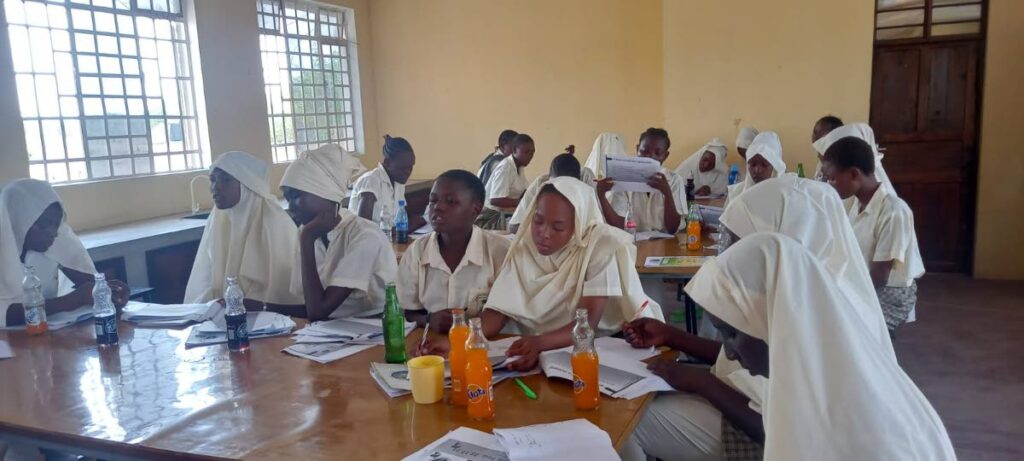Roots Foundation takes action to protect women and girls

Rape culture, child marriage, genital mutilation, and other similar practices have plagued women and girls throughout history. As atrocious as they are, they continue to be prevalent worldwide – enshrined by many cultures and societies as “traditions” or simply as the way things are done.
For example, in some parts of Ghana if a girl gets pregnant out of wedlock, she is stripped naked, carried to every corner of the village and publicly shamed. In other cultures, the rape of girls, some as young as one day old, is considered a cure for men who contracted the HIV virus. According to Unicef more than 800 million women and girls have suffered from harmful cultural practices.
TT has had its own journey with these types of cultural practices. Up until recently, child marriage was a tradition among some religions in TT. It was only in June 2017 that Parliament unanimously voted to outlaw the practice and made 18 the legal age of marriage.
Locally, Mtima Solwazi, general manager and founder of the Oral Tradition Roots Foundation, through the US Embassy’s Alumni Engagement Innovation Fund (AEIF), is engaging girls and boys to develop a messaging campaign to combat harmful cultural practices.
A message for youths, by youths
The project is called GPS EmpoWOMEN Global Summit, Solwazi said in a conversation with Newsday. The summit involved countries from three regions – the Caribbean, Africa and South Asia. The Caribbean was represented by TT and the Bahamas, Africa was represented by Kenya and Ghana and South Asia was represented by India and Sri Lanka.
Solwazi said the six countries participated in the International Visitors Leadership Programme (ILVP) in 2016. In January, this year, the embassy announced an open competition for past alumni of US government-sponsored exchange programmes, such as the ILVP, which would accept proposals for projects that promote governance, peace and security in each region and expand on the skills developed by participants.
Alumni from the six countries came together and decided to address the issue of harmful cultural practices through the global summit.

“The six of us decided to do something together and this just unfolded,” Solwazi said. “In these six countries some of the cultures are different and others are similar, but we all face the same challenge. What is happening in a village or behind closed doors in TT is also happening in India, Sri Lanka, Ghana, Kenya, Bahamas and other countries around the world where women suffer from sexual violence.”
Each country had a focus group of 25 people between the ages of 13 and 19 – in TT there were 20 girls and five boys – that discussed gender-based violence, family life and recreation and equality and equity. The same themes were also used in workshops where the youths looked at each theme, along with building self-confidence to combat domestic violence and poetry.
The project started in August and ended at the end of the 16 days of activism against violence against women and girls which ran from November 25 to December 10.
At the end of the project, the six countries completed documentary on the experience and a manual that would assist other countries to launch similar initiatives.
Solwazi said with the messaging the children developed, countries can now combat centuries of harmful cultural practices.
He added that in many cases the campaigns that are seen are made in the United States for cultures there. He said now, with their programme underway, they would be able to create messages that would resonate with cultures in each country.
SOS – save our sisters
Unicef, on its web page, said some 650 million women and girls worldwide were married as children, and over 200 million have been subjected to female genital mutilation. Genital mutilation can lead to serious health complications which include prolonged bleeding, infection, infertility, heightened complications during childbirth and in some cases, death.
In some societies, according to Unicef, female genital mutilation and child marriage go hand in hand. The girls who are made to endure either are more likely to drop out of school and become pregnant as teens.
During the EmpoWOMEN initiative the 25 participants in Kenya – all girls under the age of 17 – identified genital mutilation as the worst experience of their lives. They said they were all subjected to the practice at a very young age, some were as young as three years old.
The girls were students of Sane Girls High School – a rescue centre for girls which was turned into a boarding school. The Kenyan lead for the project, Ibrahim Sane, built the centre and accommodated 300 girls, some had experienced genital mutilation, child marriage and both practices. The Kenyan government took over the centre and turned it into a boarding school.
Although the girls did not have laptops, they were able to take part in the workshops using one laptop and a projector. Solwazi said during the Zoom sessions, they would gather around the projector and if they had to make a comment they would go on a chair in front of the laptop and speak.
Solwazi noted that many communities in African states did not have access to the internet and online devices. One girl asked at a workshop how they were supposed to send messages to the digital world without access to the technology.
He said overall, young people were negatively affected in some cultures which are against technology and western ideologies. For them, he said, a traditional messaging campaign would work just as well as a digital one.
“They can get the message through a bullhorn. We can put that message on posters and flyers at the local supermarket. Modern forms of messaging may not work, so we could mix it with the traditional methods. A message is a message.”
Solwazi said there was a plan to find a way to provide the 300 girls of the Sane Girls High School with laptops. He said it could be possible if they were eligible to apply for another AEIF grant through their support of girls and women in STEM.
He said with the help of counsellors and the workshops, all of the participants were able to obtain the tools to develop campaigns in their countries.
“Those girls made us all cry,” Solwazi said. “Some of the messages that they made said, ‘I am beautiful. I am powerful. I should not undergo female genital mutilation.’ A lot of their messages attacked that cultural norm, because that was what affected them most. They were victims, now they are survivors.”
Everyone must take responsibility
Solwazi said more than ever, men have to become allies in the fight against violence against women and girls. He said men are in many cases the perpetrators, but they are not alone.
“In these cultures where female genital mutilation is practised, who do you think actually does the stitching of the labia and cutting? Do you think it’s the men? No, in many cases it is the women who are doing it themselves.”
“That is why we have to stop seeing ourselves as adversaries and start seeing ourselves as allies,” he added. “On both sides we can accept some blame, but on all sides, we have to take responsibility.”
He said his hope for each of the six countries involved in the programme is to arm the youths with the tools to speak out against harmful cultural practices without attacking men and women.

“We can’t say we are going to attack all men because we want to take a stand against female genital mutilation. You may find yourself attacking the women in your village and in your own family. We have to instead attack the cultural norm. We want that to stop.”
“What we have to do is arm them with the tools so they could live beyond the state of being a victim and become a victor, a survivor and an activist. Now they would be able to speak on it, and not just from a personal perspective, they could speak from a place of knowledge.”


Comments
"Roots Foundation takes action to protect women and girls"